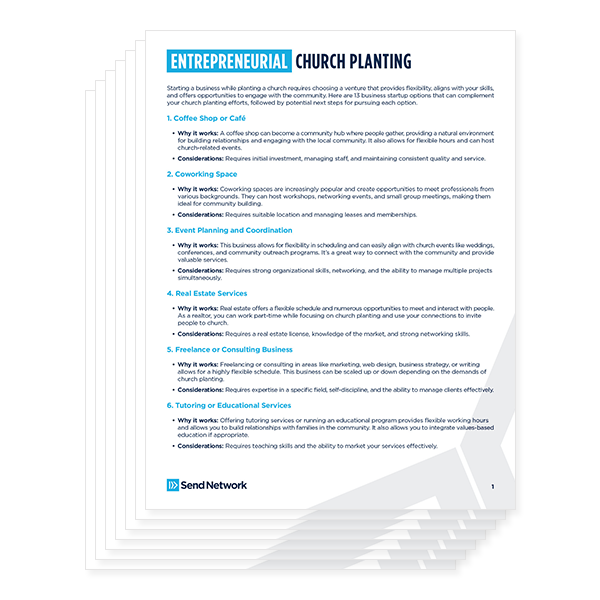People with a natural passion and ability to keep plants alive are said to have a green thumb. I’m not sure what term is used to describe those who possess an uncanny ability to kill and destroy plants, but that’s what I have. If you are a plant (which would be strange since you’re reading this post), the last thing you want is for me to pick you. It’s a sure death sentence.
Some people know all the right tricks for growing plants—like how to use organic manure or dead fish for the best growth. I fail on the most basic level. Plants need water and sunlight to thrive, and those are the very things I fail to provide. My shriveled plants can testify to my negligence.
In much the same way, certain factors are vital for churches to grow, mature and reproduce. These key traits—such as faithful preaching, missionary intentionality and biblical community—are essential for the health of God’s church. Conversely, certain factors are church killers. Corporately, these traits might include heretical teaching, apathetic evangelism or disunity.
Individually, certain marks of leaders are known to kill a church as well. While it may seem that every church catastrophe is unique, like plants, a few known factors are true of the untimely deaths of many churches. Over the next two weeks, we at the Send Network are going to highlight traits of leaders that are sure to kill a local church.
The Death-Grip
One of the fascinating realities of church planting and pastoral ministry is that the very things that make a person effective in leadership can, if not appropriately harnessed, lead to their demise. For example, many young pastors are zealous to lead God’s people into a new missional endeavor. Through this leader’s charisma and passion, many are mobilized to join in God’s mission and a church is birthed. The pastor’s magnetic personality is a key factor in leading the church to climb the mountain of church planting; however, the same personal winsomeness that allows the pastor to cast compelling vision and captivate others may push them off the mountain on the other side. They may build a church leader-centric church in which people are following the charismatic leader more than they are following Jesus. This feeds the leader’s lust for power and the latent pride lurking in his heart, often leading to the eventual implosion of the church.
The same principle is true in the area of control. Pastors, particularly church planters, are often gifted leaders, with a Spirit-birthed passion to see a long-term objective and to map out a plan to accomplish their vision. They want the responsibility that comes from being in control and believe that, with God’s power, they are called to lead the church into the future. Praise God for leaders willing to take the mantle of leadership, make hard decisions, proclaim the gospel and evangelize the lost.
But this God-given passion and Spirit-empowered vision can cause pastors to have a death-grip on the church. Subtly, without knowing it, we begin to believe that we control the church. Control can be a planter-killer. It can cause us to micromanage every decision, drive people rather than lead them, pout or lash out in anger when we don’t get our way, manipulate others through shame or guilt and engage in all sorts of other insidious practices that demonstrate our sinful lust for control. What should a pastor do to address this ever-present planter-killer?
Call sin, sin. Rather than rationalizing our death-grip on God’s church through all sorts of niceties such as, “Well, I just want things to be done with excellence,” or, “If I don’t do it right, someone else will mess it up, and we will miss a chance to impact many,” we must learn to see our manic efforts at control for what they are—sin. Our lust for control often demonstrates an overestimation of our own abilities and a lack of trust in God. What is more sinful than that?
Repent privately and publically. All sin is first and foremost a sin against God. Striving for control is an effort at self-sovereignty and, as such, is an affront to a sovereign God. We must acknowledge that sin and turn from it. Yet, it is also good to confess this sin to those you are seeking to control. Whether it is a fellow pastor, a staff team or a key church member, public confession can be a catalyst for growth and change.
Give it time. God’s wisdom is demonstrated in the fact that you will quickly learn how little you actually control about God’s church. Satan is prowling, people are sinning and you are failing all the time. Given enough time and enough pain, God will expose how vain your striving for control actually is. This will either crush you in despondency or propel your prayer life, entrusting your church to the only one who is worthy of having control.
Tomorrow, Jeremy Westbrook will continue this series by looking at the planter-killer of power.
Published June 20, 2016




